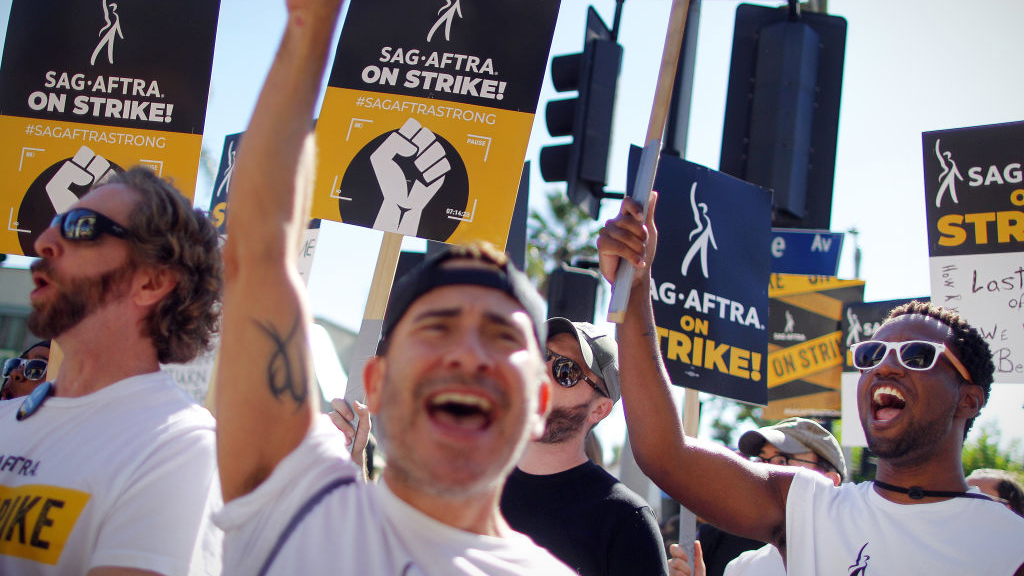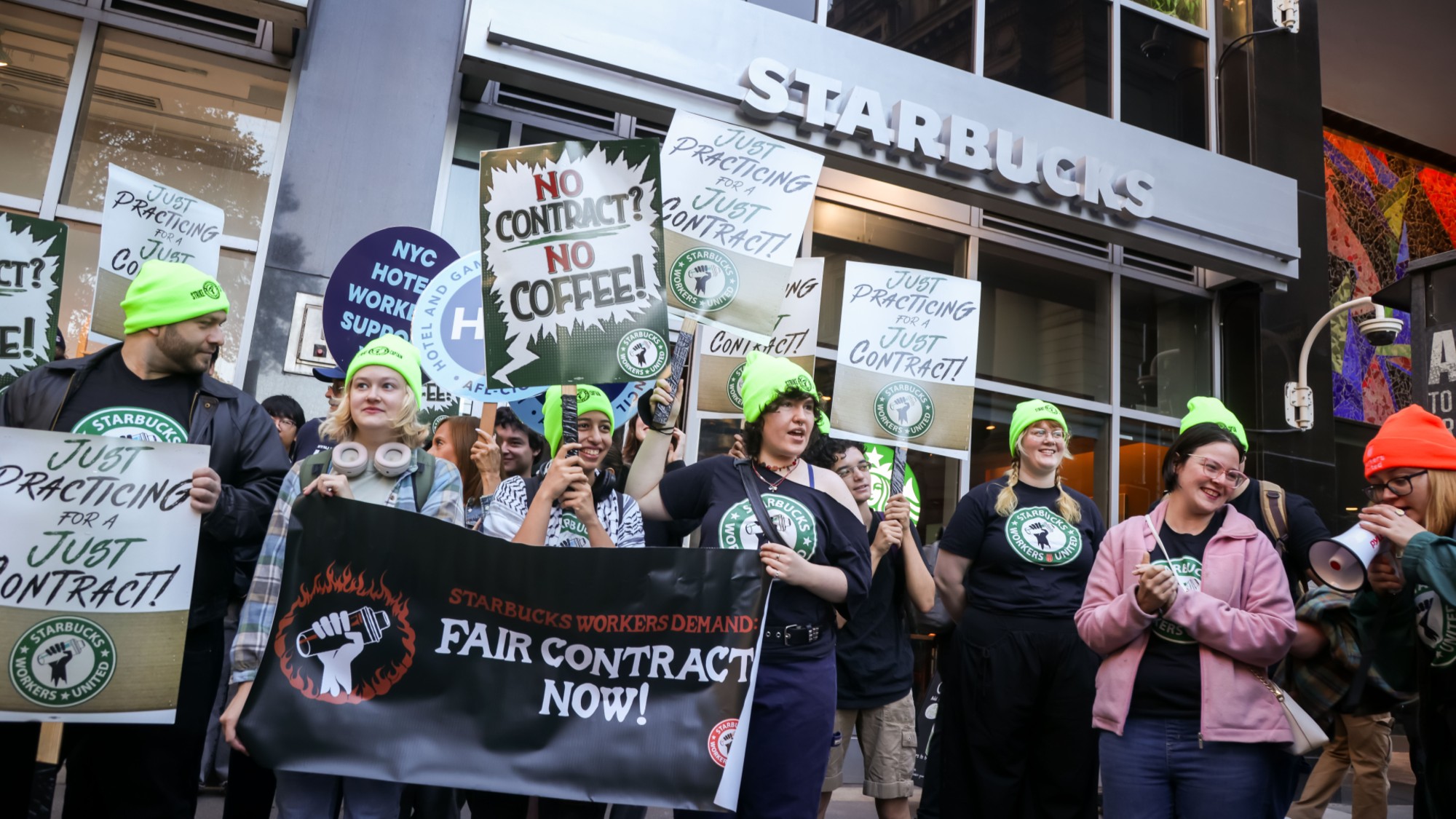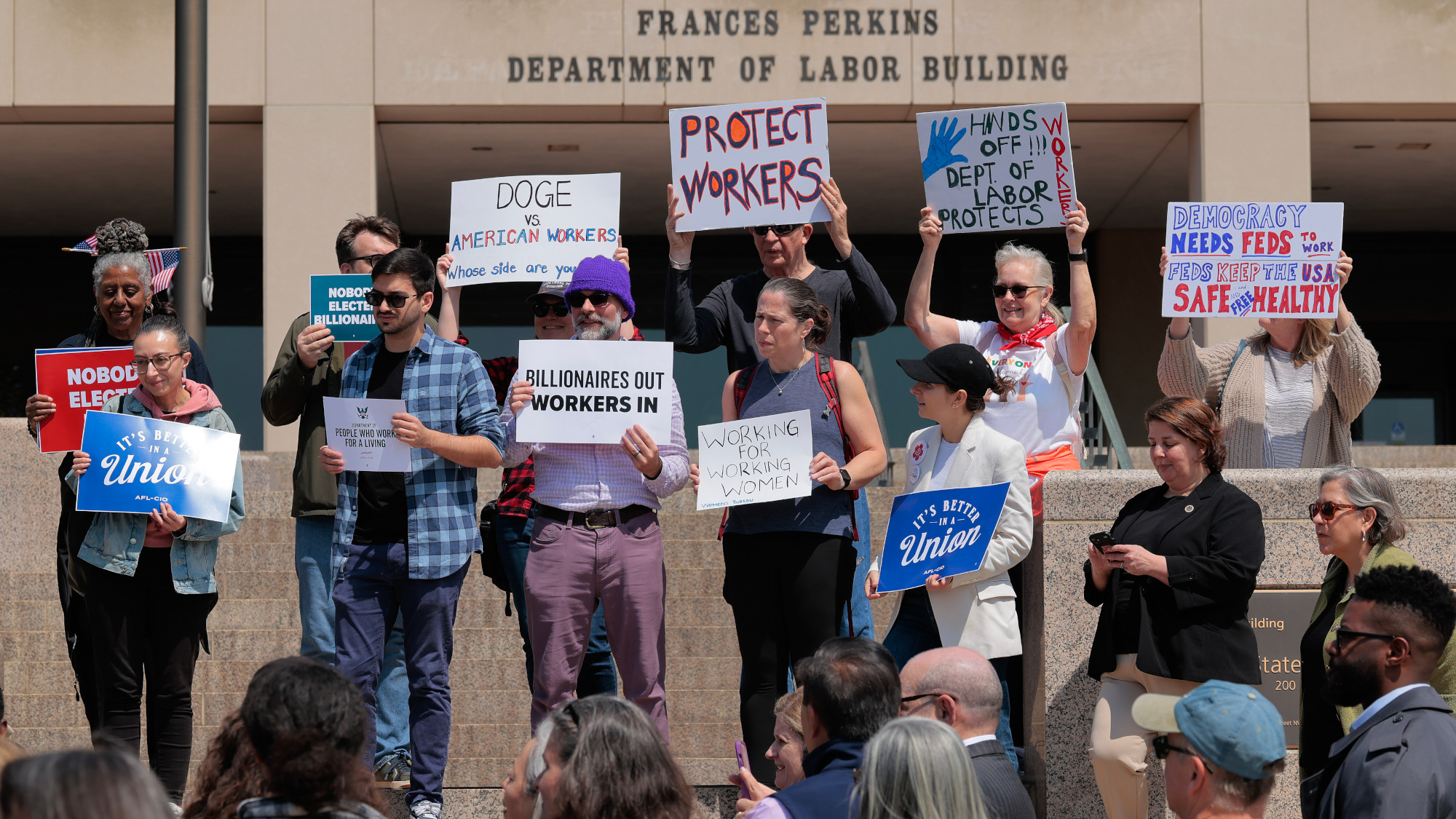The actors strike is over. Is Hollywood back in business?
SAG-AFTRA tentatively agreed to a new 3-year contract and ended its historic 118-day strike, but not everything's golden in Tinseltown


A free daily email with the biggest news stories of the day – and the best features from TheWeek.com
You are now subscribed
Your newsletter sign-up was successful
SAG-AFTRA, the union representing more than 60,000 Hollywood actors, announced Wednesday evening that its longest strike ever was ending at 12:01 a.m. Thursday after union negotiators unanimously agreed to a contract with studios and streaming companies, represented by the Alliance of Motion Picture and Television Producers (AMPTP). SAG-AFTRA's board will review the proposed deal on Friday, and if they sign off, the actors will likely ratify it in the coming weeks.
Both sides celebrated the deal, which ends six months of costly paralysis in the Hollywood content machine, starting when screenwriters walked off the job in May. The AMPTP and Writers Guild of America agreed to a new strike-ending contract on Sept. 24. SAG-AFTRA started striking on July 14, marking the first dual strike by Hollywood actors and writers since 1960.
SAG-AFTRA and the AMPTP agreed on a proposed contract that locks in historic gains for actors, boosts minimum pay, streaming residuals, and pension and health plan contributions, and provides new safeguards for artificial intelligence. SAG-AFTRA said the three-year deal was worth about a billion dollars. The dual strikes caused an estimated $7 billion in economic damage, Cal State Northridge expert Todd Holms told the Los Angeles Times.
The Week
Escape your echo chamber. Get the facts behind the news, plus analysis from multiple perspectives.

Sign up for The Week's Free Newsletters
From our morning news briefing to a weekly Good News Newsletter, get the best of The Week delivered directly to your inbox.
From our morning news briefing to a weekly Good News Newsletter, get the best of The Week delivered directly to your inbox.
With the strike over and the 2023-24 TV and movie seasons salvaged, expect "a rush on soundstages and crews" as TV shows jockey to restart production, The Wall Street Journal said. "Studio executives and producers will begin a mad scramble" to line up stars, writers and insurance," The New York Times added.
This "should be a rapturous time in Hollywood," with "champagne for everyone!" Brooks Barnes wrote in The New York Times. Instead, the mood is "decidedly mixed" as resentments linger and the currents that caused the labor rupture — the rise of streaming and AI, the decline of cable — continue to wreak havoc on Hollywood's business model.
Analysts said higher labor costs will add 10% to production budgets. "Companies are not going to increase their budgets accordingly," said movie-business writer Jason Squire. "They will compensate by making less. The end."
And while A-list actors can immediately return to red carpets and promote their projects again, most actors will just go "back to auditioning and back to their normal lives," strike captain Elyssa Phillips told the Los Angeles Times. "The people who wait tables will still be waiting tables. They just may have auditions after work. But I've never been so excited to audition in my entire life."
A free daily email with the biggest news stories of the day – and the best features from TheWeek.com
Peter has worked as a news and culture writer and editor at The Week since the site's launch in 2008. He covers politics, world affairs, religion and cultural currents. His journalism career began as a copy editor at a financial newswire and has included editorial positions at The New York Times Magazine, Facts on File, and Oregon State University.
-
 6 of the world’s most accessible destinations
6 of the world’s most accessible destinationsThe Week Recommends Experience all of Berlin, Singapore and Sydney
-
 How the FCC’s ‘equal time’ rule works
How the FCC’s ‘equal time’ rule worksIn the Spotlight The law is at the heart of the Colbert-CBS conflict
-
 What is the endgame in the DHS shutdown?
What is the endgame in the DHS shutdown?Today’s Big Question Democrats want to rein in ICE’s immigration crackdown
-
 Lucasfilm passes ‘Star Wars’ torch to new leaders
Lucasfilm passes ‘Star Wars’ torch to new leadersSpeed Read Kathleen Kennedy is stepping down after 14 years at the company
-
 Ski town strikers fight rising cost of living
Ski town strikers fight rising cost of livingThe Explainer Telluride is the latest ski resort experiencing a patroller strike
-
 What will the US economy look like in 2026?
What will the US economy look like in 2026?Today’s Big Question Wall Street is bullish, but uncertain
-
 How will the Warner Bros. bidding war affect the entertainment industry?
How will the Warner Bros. bidding war affect the entertainment industry?Today’s Big Question Both Netflix and Paramount are trying to purchase the company
-
 Starbucks workers are planning their ‘biggest strike’ ever
Starbucks workers are planning their ‘biggest strike’ everThe Explainer The union said 92% of its members voted to strike
-
 Warner Bros. explores sale amid Paramount bids
Warner Bros. explores sale amid Paramount bidsSpeed Read The media giant, home to HBO and DC Studios, has received interest from multiple buying parties
-
 Labor: Federal unions struggle to survive Trump
Labor: Federal unions struggle to survive TrumpFeature Trump moves to strip union rights from federal workers
-
 FCC greenlights $8B Paramount-Skydance merger
FCC greenlights $8B Paramount-Skydance mergerSpeed Read The Federal Communications Commission will allow Paramount to merge with the Hollywood studio Skydance
